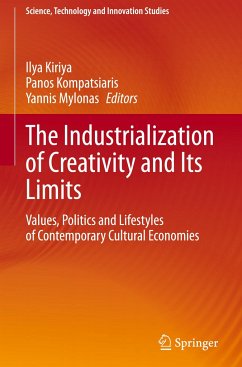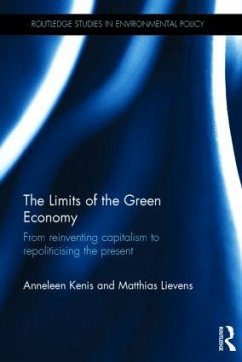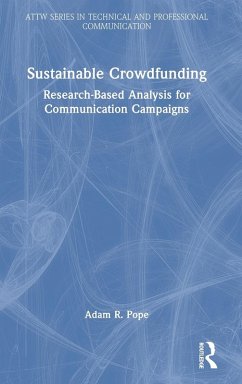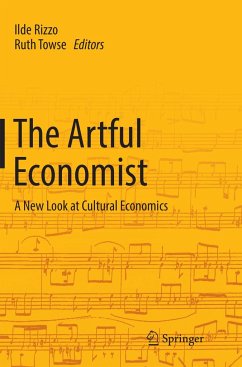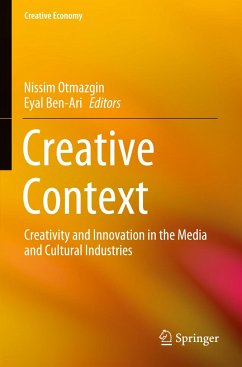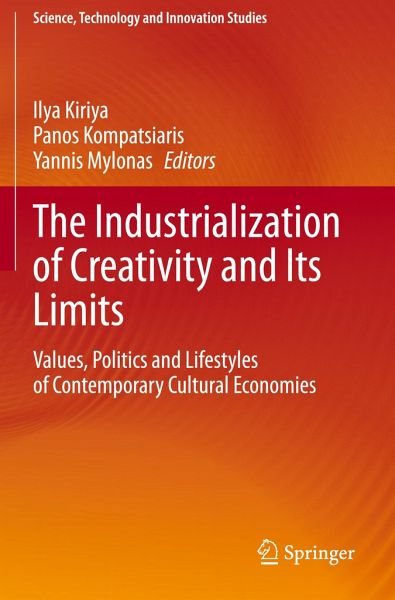
The Industrialization of Creativity and Its Limits
Values, Politics and Lifestyles of Contemporary Cultural Economies
Herausgegeben: Kiriya, Ilya; Kompatsiaris, Panos; Mylonas, Yannis
Versandkostenfrei!
Versandfertig in 6-10 Tagen
106,99 €
inkl. MwSt.

PAYBACK Punkte
53 °P sammeln!
Creativity loosely refers to activities in the visual arts, music, design, film and performance that are primarily intended to produce forms of affect and social meaning. Yet, over the last few decades, creativity has also been explicitly mobilized by governments around the world as a 'resource' for achieving economic growth. The creative economy discourse emphasizes individuality, innovation, self-fulfillment, career advancement and the idea of leading exciting lives as remedies to social alienation. This book critically assesses that discourse, and explores how political shifts and new theor...
Creativity loosely refers to activities in the visual arts, music, design, film and performance that are primarily intended to produce forms of affect and social meaning. Yet, over the last few decades, creativity has also been explicitly mobilized by governments around the world as a 'resource' for achieving economic growth. The creative economy discourse emphasizes individuality, innovation, self-fulfillment, career advancement and the idea of leading exciting lives as remedies to social alienation. This book critically assesses that discourse, and explores how political shifts and new theoretical frameworks are affecting the creative economy in various parts of the world at a time when creative industries are becoming increasingly 'industrialized.' Further, it highlights how work inequalities, oligopolistic strategies, competitive logics and unsustainable models are inherent weaknesses of the industrial model of creativity. The interdisciplinary contributions presented here address the operationalization of creative practices in a variety of geographical contexts, ranging from the UK, France and Russia, to Greece, Argentina and Italy, and examine issues concerning art biennials, museums, DIY cultures, technologies, creative writing, copyright laws, ideological formations, craft production and creative co-ops.



